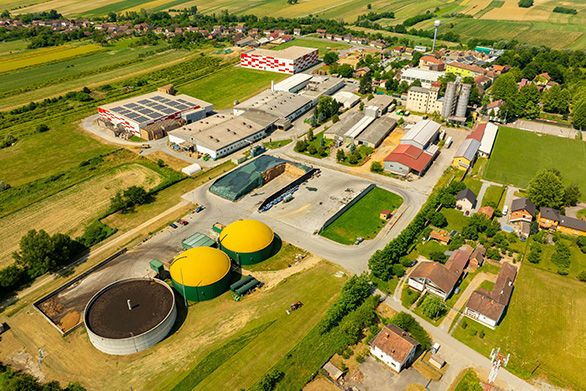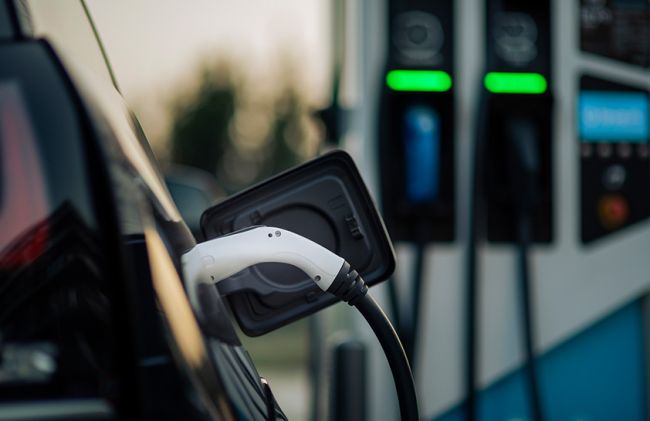More than a plug: The strategic role of EV charging in energy projects
Amid conflicting and often inflammatory headlines, what is the real state of our transition to electric vehicles?

Amid conflicting and often inflammatory headlines, what is the real state of our transition to electric vehicles (EV)? Across Europe, government mandates are driving us toward an inflexion point after which demand for EVs and the charging infrastructure that refuels them will increase dramatically to a zero-emission future.
Here, in the lead up to Steer’s event ‘Ramping Up: Unlocking the value in EV infrastructure investment’, Maria Balyasna, Associate Director for Energy Transition within the Commercial Advisory team at Amberside Advisors (part of Steer Group), tells us why EV charging infrastructure can improve the business case and investment appeal for local energy transition projects.
Can EV charging improve the business case for local decarbonisation projects?
Since the proliferation of the internal combustion engine in the 20th century, there has been a clear divide between where we fill up our cars, at the petrol pump, and how we power our buildings, through the electricity grid. However, in the future, flicking a light switch and turning the key in the engine will both be powered by the same source, renewable electricity.
This paradigm shift presents a huge advantage for added value for those considering EV charging as part of their overall path to decarbonisation from the start.
Why is EV charging so beneficial as part of local energy transition projects?
EV has a big part to play in decarbonising a wide array of sectors: hospitals will need to electrify their ambulances, industrial estates will need to electrify commercial vehicles, while local authorities will need to provide EV chargers for public car parks and on-street parking.
Currently charging is often seen as an add-on or something which pales in comparison to the tasks of decarbonising heating and other utilities for large estates. We need to change the viewpoint of EV charging to something which is integral to decarbonisation projects overall. Adding EV charging into the energy mix offer three key benefits to those projects.
Highly flexible: Unlike lighting and heating demand for a building, the energy profile of EVs is highly flexible; they use energy relatively sparingly and intermittently over longer stretches of time via their batteries. Charging can usually be delayed or spread out over hours without affecting user needs. Therefore, EVs can be scheduled to charge to benefit from off-peak tariffs or at times when energy generation is high or abundant and would otherwise be wasted. Charging draws significant power, so adjusting it has a meaningful impact on both site-level energy balancing and cost optimisation.
Localised load matching: (EV) charging presents a valuable opportunity to align energy demand closely with local renewable generation sources, such as solar farms or energy-from-waste (EfW) plants. By doing so, it enables a more efficient, cost-effective, and environmentally sustainable electricity supply. This localised matching of supply and demand reduces reliance on long-distance electricity transmission, thereby minimising associated losses in the distribution network.
How to enhance the investment appeal of decarbonisation projects with EV charging
EVs offer a uniquely flexible energy demand that can be intelligently managed to align with periods of high renewable generation or low tariffs, optimising both energy use and cost. Their substantial yet controllable load contributes to on-site energy balancing and improves the efficiency of local systems. By matching EV charging with nearby renewable sources, projects can reduce transmission losses, enhance sustainability, and support a more resilient and future-proof energy infrastructure, making them more attractive to investors seeking long-term value and environmental impact.
Investing in ‘place-based’ solutions is the most economic pathway to achieving net zero by 2050, and Amberside Advisors is a sector leader in offering comprehensive modelling, commercial and financial advisory solutions for decentralised energy projects.
Combining industry experience with financial expertise (already well established across the infrastructure sector), we have developed and commercialised decentralised energy opportunities and closed transactions across the world with over 500 renewable energy projects in our portfolio.
We have helped clients across the public and private sectors realise their decentralised energy potential. For more information, please contact Maria Balyasna.



















